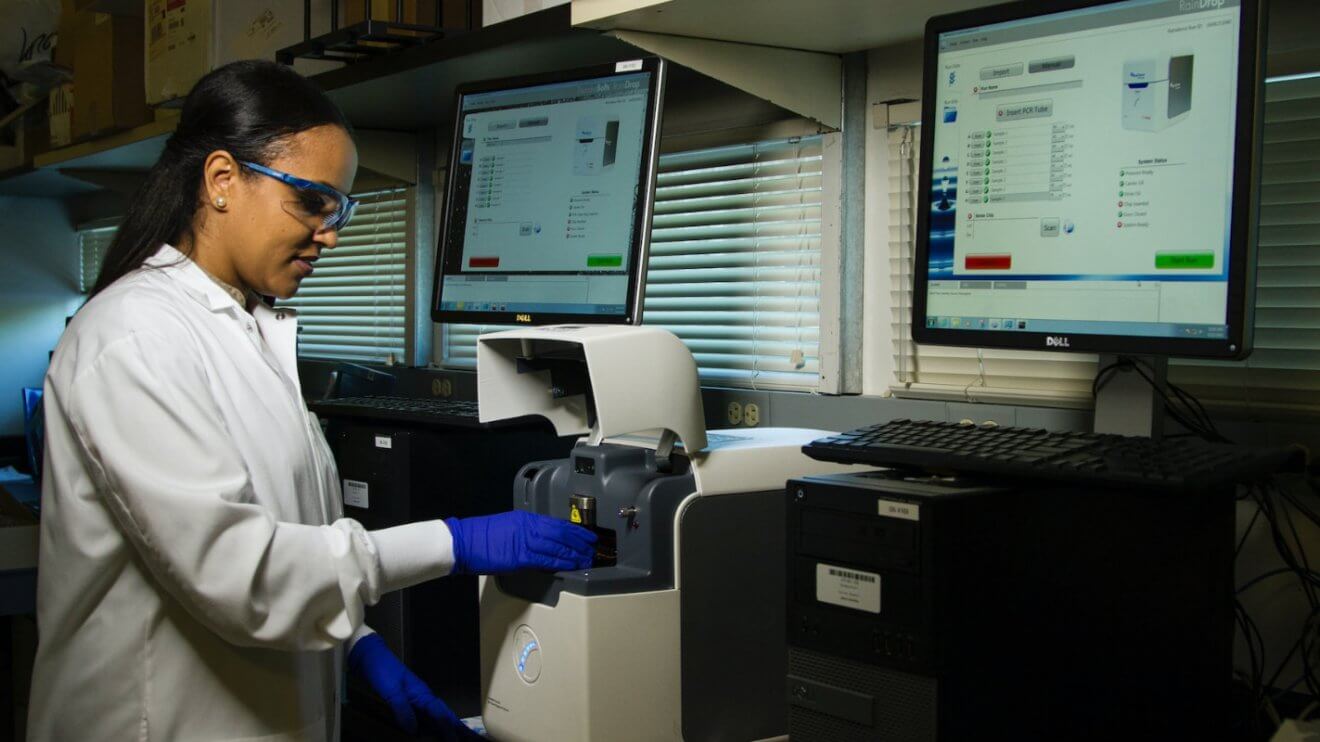Five postdoctoral scientists were awarded grants to advance groundbreaking research, encouraging the next generation of diverse women in science to address society’s most pressing challenges.
L’Oréal USA announced the recipients of its 2023 For Women in Science (FWIS) Fellowship program. The program grants awards annually to five female postdoctoral scientists to support their research endeavors. This year marks L’Oréal USA’s 20th anniversary of helping to advance women in STEM fields through its FWIS program. The FWIS program has provided more than $5 million in grants to support the work of innovative women scientists.
The 2023 class of L’Oréal USA For Women In Science
- Bria Macklin‘s research in data science and biotechnology at the Gladstone Institutes focuses on improving current gene editing strategies for genetic diseases that affect motor neurons. Successful gene therapies have the potential to change lives and many genetic diseases are currently uncurable. Her research has the potential to generate new cures.
- Taylor Medwig-Kinney, whose research in biology at University of North Carolina at Chapel Hill focuses on how cells change shape during development. She used microscopic worms called C.elegans which allowed her to observe cells changing shape in real-time. This research helps outline when this process goes wrong in humans, which can lead to conditions such as spina bifida.
- Joscelyn Mejías, whose research in biomedical engineering at John Hopkins University focuses on studying uterine fibroids, painful tumors of the uterus that can impact fertility. Uterine fibroids are extremely common, yet not well understood. She hopes her research will lead to new and better treatment options for targeting uterine fibroids and fibrosis.
- Jessleen Kanwal‘s biology and biological engineering research at the California Institute of Technology focuses on how animals interact adaptively with other organisms. She focused on the rove beetle species to understand how it uses critical sensory cues for survival. Understanding the beetle brain helps us understand when we’re aging and when our ability to combine the senses and interact with others starts to decline.
- Caitlin Kowalski, whose research in microbiology at the University of Oregon focuses on how the fungi that live on our bodies can help protect humans from infection. There is very little known about how host-associated fungi contribute to human health. Her work emphasizes the importance of considering fungi as a resource to identify new antibiotics.
A week-long program of events and engagements for the For Women in Science Fellows
- A symposium hosted by the National Academies of Sciences, Engineering & Medicine (NASEM) focused on advancing women in STEM leaders. The mentoring event features an expert panel focused on the importance of STEM communication in promoting gender equity in STEM fields. The awardees will have the opportunity to present their scientific research and to engage in a scientific exchange with a cohort of scientists from L’Oréal.
- A roundtable discussion hosted by UNESCO links issues of women in science and the opportunities that science diplomacy plays in promoting global cooperation. Awardees can learn about the work of UNESCO in the field of advancing scientific engagement as a diplomatic tool.
The L’Oréal USA FWIS program
The L’Oréal USA FWIS program has acknowledged and supported 100 postdoctoral female scientists. Subsequently, more than $5 million have fueled innovation in fields spanning from neurobiology to biomedical engineering. This initiative serves as the U.S. segment of the L’Oréal-UNESCO For Women in Science International Awards. An awards program established in 1998 to honor and empower women scientists globally. The international program has bolstered the careers of over 4,100 female scientists from 110 different countries.
The candidates are evaluated based on their intellectual merit, research potential, scientific excellence and commitment to supporting women and girls in science. The L’Oréal USA program includes a requirement to ensure recipients are committed to serving as role models for younger generations. L’Oréal USA’s fellowship partner engages experienced scientists to peer review applications and convene a jury to select the annual winners.
For more information about the L’Oréal USA 2023 For Women in Science Fellows or to apply for the L’Oréal For Women in Science 2024 program, click here.
About L’Oréal USA
L’Oréal USA is the largest subsidiary of the L’Oréal Group, the world’s leading beauty company. Through its management of over 35 iconic beauty brands, L’Oréal USA has generated more than $9 billion in sales annually. Products are available across all distribution channels including hair salons, department stores, mass markets, pharmacies, medispas, e-commerce and more. L’Oréal USA’s commitment to growth is generated through sustainable innovation. The company is headquartered in New York City and operates administrative, research, manufacturing and distribution facilities across 16 states.
About For Women In Science
The L’Oréal USA For Women in Science (FWIS) fellowship program awards five female postdoctoral scientists with grants of $60,000 each. The grant is exclusively for their contributions to Science, Technology, Engineering and Math (STEM) fields. The FWIS program has supported 100+ female scientists, awarding over $5 million in grants. L’Oréal USA partners with the American Association for the Advancement of Science (AAAS) to select winners. The program is the U.S. component of the L’Oréal-UNESCO For Women in Science International Awards. Created in 1998 it has recognized and rewarded over 4,100 women in STEM from more than 110 countries.
About AAAS
The AAAS is the world’s largest general scientific society. Founded in 1848, the AAAS includes over 250 affiliated societies and science academies, serving 10 million individuals. The AAAS is the publisher of the journal Science, Science Translational Medicine; Science Signaling, Science Advances, Science Immunology and Science Robotics. Science has the world’s largest paid circulation of any peer-reviewed general science journal. The nonprofit AAAS’s mission is to “advance science and serve society” through initiatives in science policy, international programs, science education, public engagement and more. For additional information about AAAS, click here.
If you’re looking for grants to elevate your work, take a look at our January grant round-up.






Add Comment